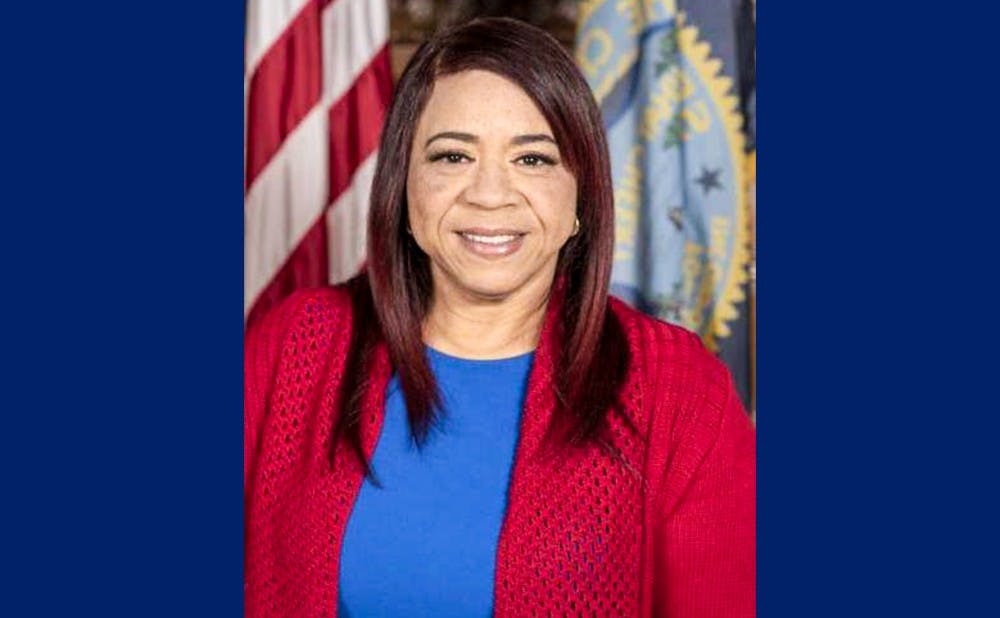The Chronicle's Lena Yannella recently sat down with Providence, R.I., city councilwoman Carmen Castillo when Castillo was on campus for a talk.
Splitting her time between working as a housekeeper and a lawmaker, Castillo discusses how one aspect of her life impacts the other, and considers her challenges and experiences since immigrating to the United States and beginning her time in office.
This interview has been edited for length and clarity.
The Chronicle: How do you balance working as a councilwoman and as a hotel housekeeper?
Carmen Castillo: When I'm housekeeping in the hotel and when I'm a city councilwoman, it's two different worlds. You need to be where you are in each moment.
TC: Does your background as an immigrant and your work as a hotel employee enhance your ability to understand and represent your constituents?
CC: Yes. Because, you know, I'm an immigrant and a minority individual. I'm a woman, Latina and it's a lot of frustration for people and they need to still believe. And I understand my community, that's why I understand what they are, what they need, what is needed in my neighborhood, what I want to see happen.
TC: What obstacles did you face when you immigrated to the United States from the Dominican Republic and how did you overcome those obstacles?
CC: When I came here, I didn't speak any English. English is hard to learn, and when I came here it was really difficult to understand how everything worked.
TC:What helped you overcome those obstacles?
CC: School. I took an English class at the public library that they offer for people like me—you know, immigrants. They want to help immigrants understand when people are talking to them because we need to learn English in order to go the doctor office. We really needed to work. We all really needed English for something.
I passed the first and second step in the library but I needed to learn more. We had a union negotiation and forced the company to give the ESL classes to the workers too.
TC: At that point when you immigrated, could you have imagined that you would ever become a politician?
CC: No. When I came here, I really hated political people because I saw that they weren't doing the right things. So I said, "I hate you!"
TC: Are there any political issues in particular that motivated you to run for office ?
CC: I'm the woman who fights for everything in her life. And I don't want to run for political positions because I want to be a political person. I'm running for the situation. My city councilperson passed away, and we needed someone to represent the community. When the community members asked me to do it, I was really scared and didn't want to, but they said, "We are here for you, we will help you." I said, "Yes."
I won my first election, got to the second one, I went on to the third one because when you do something with passion, you want to continue to do it. And that's why I made my third term on the city council. And I feel more comfortable here now.
When I started, I was really scared and nervous and I said, "Oh my God, what am I doing? I'm not prepared to be a city councilperson, and my English is not articulate." Someone always mentions that I'm the housekeeper. I say it's not true. I'm the woman. I have a brain. It's sad that people judge me based on those things, or based on my education. They don't think about me like I'm a human, like I have a brain.
TC: Did you have a mentor? Who helped you achieve your goals?
CC: My mom was my first mentor. She organized the women in my country, organized the students to achieve the first level for education, and helped organize the people to fight because they believed the government doesn't do the right thing.
And the second one was my city councilperson. I saw him, a man and member of a minority group, working hard and then being discriminated against all the time because he was Latino. I worked with him, and he inspired me. I saw him being arrested for defending people, marching with people, and really fight with me for the workers, for immigration, for everything.
TC: After working as a councilwoman for about eight years, have you learned certain tactics or strategies that help you better accomplish your goals?
CC: In the seven years or so that I've been here, I have seen a lot of things change, like how the city council sees the community differently. The lawyers and professionals sit down with the housekeeping woman, and I don't have a degree. I don't have an education in this country. Also, we have had more new city council people coming in, and we have had more opportunities to work together.
TC: What would be your advice to a young person who wants to become a politician?
CC: I would tell them, "you have a lot of opportunities." I believe education is the key, giving education to kids. Being involved in politics doesn't mean being a rich person, or that you can do whatever you want because you have power. When you decide to be a politician, it should be because you want to change the community and give opportunity to others. Young people have the future in their hands right now because we are old-fashioned. But technology gives them the tools and school gives them the chance to do better than we are doing right now.
Correction: This story was updated Tuesday evening to correct a quote about why Castillo said she ran for office. The Chronicle regrets the error.
Get The Chronicle straight to your inbox
Signup for our weekly newsletter. Cancel at any time.

